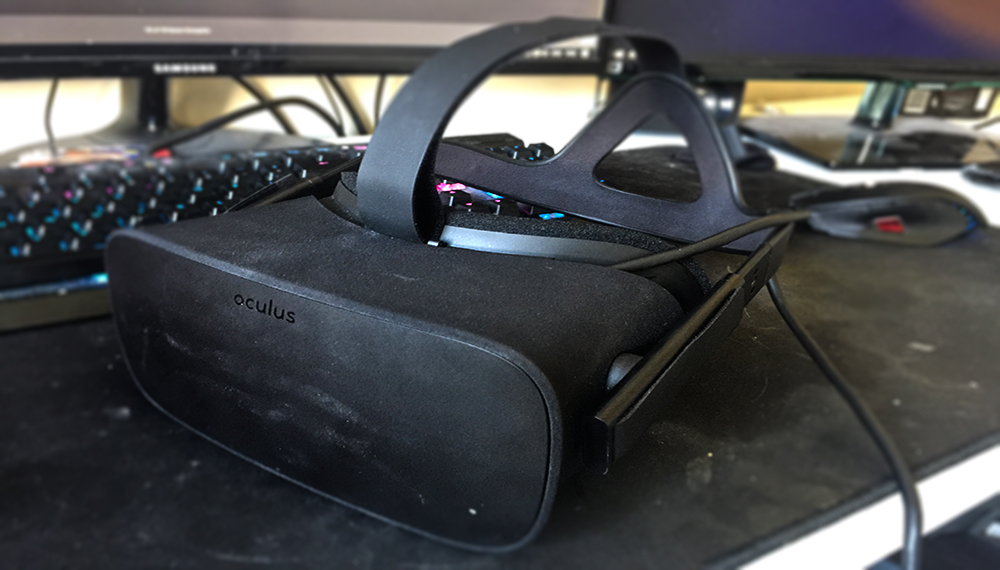
09 May Virtual Reality is going to shape future of entertainment
(Pic: The Oculus Rift is one of many popular VR systems available. Credit: Liam Terry)
Virtual Reality is becoming more accessible every year and will create a new dynamic on how entertainment is experienced, Liam Terry reports
It’s no secret that the idea of virtual reality (VR) systems makes us feel like we’re living in the distant future. Technology is always advancing and giving us new ways to create, interact and communicate with eachother. Whilst VR was conceptualised with gaming heavily in mind, it’s also now proving more versatile tool for work and connections.
Whilst the main appeal for VR systems was the idea of it conforming mainly to the video game industry, VR does prove to be a viable tool for the general market too. Its the potential for innovation that can be seen from the use of this technology, such as Google’s very own Google Earth VR, a complete digital reconstruction of the application of the same name able to be experienced in VR, putting you in and place you would desire, making it a very veritable tool.
Metavision, a leading VR/Augmented reality developer created by neuroscientists, have shown their passion for innovation using the technology of these systems. Leading communications at Meta, Florian Radke, has expressed the benefit these tools hold for us in the future: “I believe that VR will be the next big platform for productivity in general, but for sharing information in particular.”
Florian believes the experiences that VR can deliver will greatly increase potential for our capabilities. “This technology will dramatically change how we interact with data.” Florian says. “[VR] Will decrease our learning curve, and will increase our brain’s productivity.”
 Many other industries can benefit from the access of VR, such as practising surgeons or dentists, with tools that can fully replicate a virtual space identical to a clinic and the ability to perform on a artificially-rendered human body.
Many other industries can benefit from the access of VR, such as practising surgeons or dentists, with tools that can fully replicate a virtual space identical to a clinic and the ability to perform on a artificially-rendered human body.
Stephen Spilberg’s latest film, Ready Player One, plays on this idea of how the future of civilisation is connected together via VR, and communicate by plugging into a virtual “hub”. Whilst the film is based on our creativity and what we romanticise the future to be, similar to films such as Back To The Future, a VR-oriented future may not be so different.
Games such as VRChat, a free virtual social experiment released on Steam early 2017, has now become more popular than ever thanks to publicity in media such as on YouTube and could give a little more insight into what the future of VR could encompass for gaming, and even society as a whole.
However in the case of VRChat, its still hard to picture what VR systems can deliver us in the mainstream, as the game does provide virtual social spaces that can also be created.
Players can also create their own avatars or assume the identity of any character they desire, whether they be real people or purely fictional (which mostly consists of memes and internet culture) and isn’t something that should be read into too seriously just yet.
Break free of the confines of traditional 2D screens with your favorite entertainment, level up your play style from inside the game, and spend quality time hanging out with friends—no matter how far apart you may be. Oculus Go available now! // https://t.co/B3UeATfEqr pic.twitter.com/ooJkrXK11g
— Oculus (@oculus) 1 May 2018
Still, the example should be seen as a groundwork of what’s to come, virtual social places are very possible and even shown to be popular and used by many people, we may not even be far off a 1:1 scale virtual London we can walk around and talk to people in.

